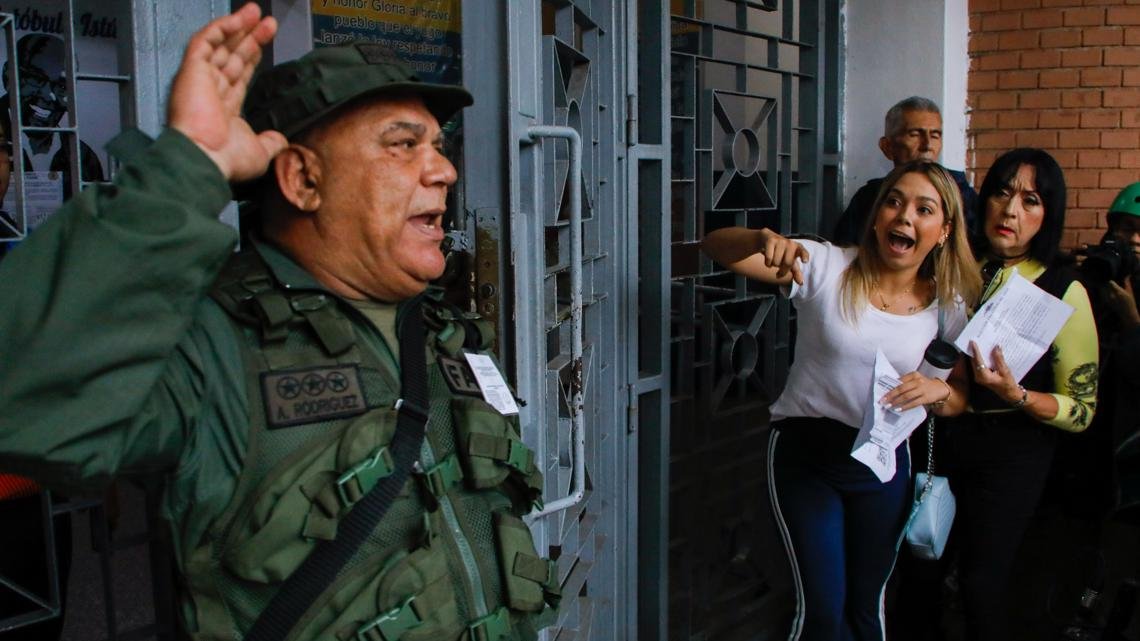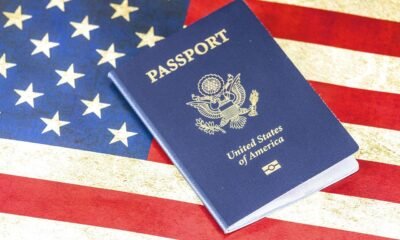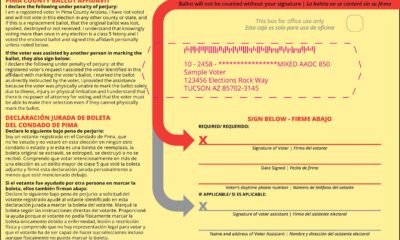Business
Venezuelan Election: Paving the Way for Political Earthquake or Extending Maduro’s Reign?

Polls opened at 6 a.m., but voters began forming lines at some voting centers across Venezuela much earlier. Sharing water, coffee, and snacks, they waited for hours, united in anticipation.
CARACAS METROPOLITAN DISTRICT, Venezuela — Venezuelans are casting their ballots today in a presidential election that could redefine the nation’s future or maintain the status quo. The voting results may either instigate significant political changes or prolong policies that have contributed to one of the most severe peacetime economic collapses the world has seen.
The two primary contenders are President Nicolás Maduro and his main opponent, retired diplomat Edmundo González. The election’s impact will resonate throughout the Americas. Both Maduro detractors and supporters have indicated they might join the exodus of 7.7 million Venezuelans already seeking better opportunities abroad if Maduro secures another term.
At a voting center, Alejandro Sulbarán claimed the first spot by lining up at 5 p.m. on Saturday. He stood outside an elementary school in a hillside suburb of Caracas, driven by hope for his country’s future.
“We are all here for the change we want,” Sulbarán, a 74-year-old maintenance business owner, said, with other voters nodding in agreement.
An estimated 17 million voters are eligible for this election. While polls will close at 6 p.m., the timeline for the release of initial results remains uncertain.
Coincidentally, today’s election aligns with the 70th birthday of former President Hugo Chávez. Despite his once-revered status, Maduro and his United Socialist Party face unprecedented unpopularity, blamed for economic hardships and social unrest.
Opposition forces, after years of division and election boycotts, have finally united behind González. Initially, Maria Corina Machado was the opposition’s choice, but she was blocked from running by the Maduro-controlled Supreme Tribunal of Justice. González then emerged as the coalition’s candidate.
Although eight other candidates are on the ballot, only González poses a serious challenge to Maduro’s reign.
Once the jewel of Latin America’s economy, Venezuela has plunged into economic despair under Maduro’s rule. Falling oil prices, shortages, and hyperinflation exceeding 130,000% led to mass emigration and social upheaval.
Sanctions imposed by the U.S. during Trump’s presidency have further exacerbated the crisis, aimed at ousting Maduro after his contentious 2018 re-election.
Maduro has spent recent days campaigning vigorously across the country, highlighting economic stability stories and promising progress. He insists he will recognize the election results and has urged all candidates to do the same.
“No one is going to create chaos in Venezuela,” Maduro declared after casting his vote. “I recognize and will recognize the electoral referee, the official announcements and I will make sure they are recognized.”
In Caracas, commercial activity has surged post-pandemic, bolstering an economy forecasted by the IMF to grow by 4% this year, despite its dramatic contraction from 2012 to 2020.
Yet, many Venezuelans, grappling with low wages and rising living costs, have seen little improvement. The average monthly income under $200 is insufficient to meet essential needs.
52-year-old Judith Cantilla expressed her desire for change after casting her vote. She emphasized the need for jobs, security, and better pay for professionals.
In greater Caracas, Liana Ibarra lined up at 3 a.m. with essentials, waiting alongside 150 others. She remarked on increased voter interest compared to previous elections.
The opposition has tapped into widespread discontent, with promises to revitalize the economy and encourage expatriates to return home.
An April poll by Delphos suggested that a quarter of Venezuelans considered emigration if Maduro wins. The poll had a margin of error of ±2 percentage points.
González and Machado’s rallies have evoked strong emotional responses, contrasting Maduro’s triumphant displays. Despite setbacks, their message of hope and reunification has resonated deeply with the populace.
González asked supporters during a rally to envision a future where families are reunited as children return home, a powerful sentiment in a nation weary of division and hardship.


















